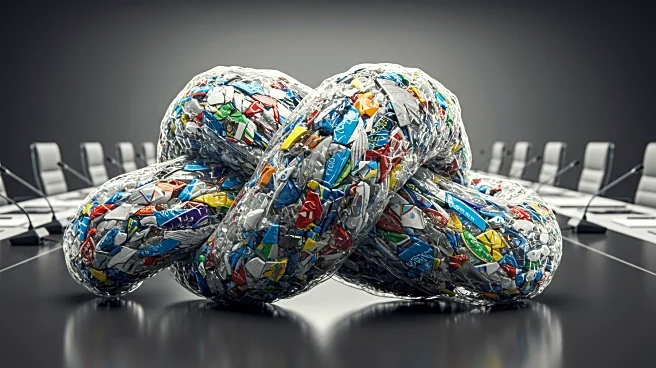What is the story about?
What's Happening?
Negotiations for a global treaty to combat plastic pollution are facing a stalemate as countries remain divided over the issue of plastic production limits. The talks, held in Geneva, involve representatives from 184 countries and over 600 organizations. A new draft of the treaty, expected to be released on the last scheduled day of negotiations, has been delayed, with consultations still ongoing. The current draft does not impose limits on plastic production or address chemicals used in plastic products, focusing instead on areas of broad agreement such as reducing problematic plastic products and improving waste management. Norway, leading a coalition of countries advocating for a comprehensive approach, insists on a treaty that includes production limits. Meanwhile, powerful oil and gas-producing nations and the plastics industry oppose such limits, advocating for a focus on waste management and reuse.
Why It's Important?
The outcome of these negotiations holds significant implications for global environmental policy and the plastics industry. A treaty that includes production limits could lead to substantial changes in manufacturing practices and reduce the environmental impact of plastic waste. Countries advocating for production limits argue that without such measures, the exponential growth of plastic production will continue to exacerbate pollution. Conversely, nations opposing these limits, often with strong ties to the oil and gas sectors, argue that such restrictions could harm economic interests. The deadlock highlights the complex balance between environmental sustainability and economic considerations, with potential impacts on international trade and industry regulations.
What's Next?
The negotiations are set to continue, with delegates reconvening to discuss the revised draft. The outcome remains uncertain, with some countries expressing willingness to extend talks to reach a satisfactory agreement. The possibility of another meeting looms if consensus cannot be reached, though some delegates oppose further delays. The final decision will likely influence future international environmental agreements and set a precedent for addressing global pollution challenges.















